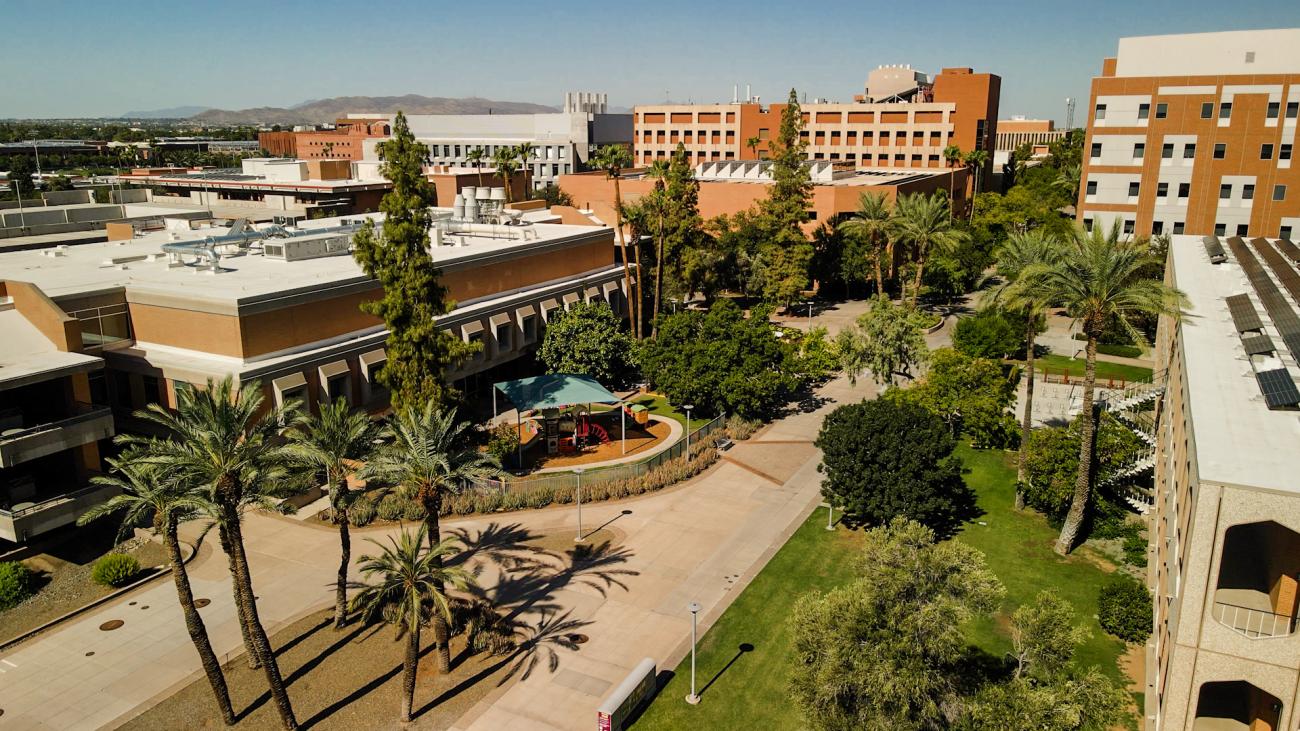
Lifespan Development Lab (Infurna)

Under the guidance of Dr. Frank J. Infurna, the Lifespan Development Lab’s mission is to utilize a lifespan developmental psychology approach to examine psychosocial and health development across the adult lifespan. More specific research interests and projects focus on examining resilience to major life stressors and psychosocial predictors of healthy aging in adulthood and old age. Adversities and life transitions occur across adulthood and old age and the goals of our research is to investigate their role in shaping the course of well-being, health, and character strengths and identify factors that determine why some individuals adapt better than others following adversity. Furthermore, we focus on examining whether and how psychosocial factors such as perceived control, volunteering and job characteristics are associated with healthy aging outcomes of cognitive functioning, disability, disease, and mortality. To address our research questions, we apply contemporary methods of longitudinal and event occurrence analysis to longitudinal panel surveys, intensive assessment research designs and interventions. Below is a list of current research projects.
Research Projects:
Pathways to Character: The notion that adversities, challenges, or failures that occur during the course of one’s life have the potential to facilitate positive change or personal growth has had significant currency. However, a central limitation of the research examining the possibility for growth and resilience has been whether individuals’ reporting of growth translates into meaningful character change. This project features a prospective longitudinal design of repeated assessments from individuals in midlife over a period of two years to examine the nature of growth and resilience following adversity. Participants were assessed monthly for a period of two years on a wide range of measures, including character strengths, health, well-being, and life events.
The illumination of whether, how, and for whom adversity leads to character growth are the central objectives of this empirical project. The question of whether adversity leads to character growth focuses on the domains in which growth is most likely to manifest, and whether it differs by adversity; how refers to the processes through which character growth manifests following adversity (e.g., meaning-making); who focuses on individual characteristics that may increase or decrease the likelihood of experiencing growth following adversity (e.g., social support).
There are several reasons why we focus our study on individuals who are in midlife. First, midlife is a period in the lifespan that is characterized by a complex interplay of multiple roles (Infurna, Gerstorf, & Lachman, 2020; Lachman, 2004). Individuals are balancing family and career in the context of changing abilities in physical health and cognitive functioning. Second, the current generation of Baby Boomers is going to be living longer than previous generations. The changing needs of Baby Boomers in midlife may especially put strain on their character strengths and virtues due to the multiple roles that they will be involved in. For example, people in midlife are sandwiched between raising their children and “launching” them into adulthood, in addition to the changing relations with their aging parents due to greater involvement and potential caregiving-related duties.
Social Intelligence Training: In 2018, the research team completed a randomized controlled trial that focused on the effectiveness of a social intelligence training program on improving social relationship quality and mental and physical health in middle-aged adults. The social intelligence training program is an interactive intervention that is delivered online to participants. The main purpose of this study was to examine the helpfulness of educational materials provided through a set of brief, daily audio-visual programs that are designed to further social understanding. The study aims to help us understand how social learning programs may benefit adults seeking to improve the quality of their living, a helpful new way to promote peoples’ health, well-being and social relatedness. The following paper that was published last year outlines some of the main findings from this research project: Castro et al. (2019).
Lab Director and Principal Investigator: Frank J. Infurna, PhD, Professor
Dr. Infurna earned his PhD in Human Development and Family Studies from The Pennsylvania State University in 2012. Before coming to ASU in the Fall of 2013, he was a Visiting Research Scholar at the German Institute for Economic Research and a Post-Doctoral Researcher at the Institute of Psychology at Humboldt University in Berlin, Germany. During his career, he has won four early career awards, including being named an APS Rising Star in 2015, the APA Division 20 Springer Early Career Achievement award in Research on Adult Development and Aging in 2017, the GSA Margret M. and Paul B. Baltes Foundation Early Career Contributions Award in Behavioral and Social Gerontology in 2018, and the Society for the Study of Human Development Early Career Award in 2019.
He is a developmental psychologist who takes a lifespan approach to studying psychosocial and health development in adulthood and old age. His research focuses on two intertwined themes: (1) resilience to major life stressors and (2) development in midlife. His research program draws from seminal notions of lifespan developmental theory and emerging methodologies for longitudinal and event occurrence analysis; his work applies these methodologies to longitudinal panel surveys, intensive assessment research designs and interventions. His research has been funded by the John Templeton Foundation and National Institute on Aging.
Current Graduate Students
Yesenia Cruz-Carrillo, BS is a first-year doctoral student in the developmental psychology program at ASU. Broadly, Yesenia’s research focuses on understanding historical changes in physical and mental health trajectories among middle-aged adults from various backgrounds. By taking a lifespan developmental lens, she is particularly interested in how the interaction of biological, psychological, and social factors each contribute to the development of individuals from marginalized communities. She hopes to continue exploring multicultural research in an effort to reduce existing health disparities and identify resources/interventions that may help promote health and well-being across the lifespan.
Nutifafa Dey, MPhil is a second-year doctoral student in the developmental psychology program at ASU and past Graduate College Enrichment fellow. He uses longitudinal methods and lifespan developmental psychology theories to study and understand the developmental trajectories of adults in low-and middle-income countries. Specifically, he is interested in better understanding what constitutes midlife development in Ghana and Sub-Saharan Africa while using longitudinal data from the SAGE dataset to determine the patterning of historical changes in health and wellbeing trajectories of different cohorts of middle-aged and older adults in Ghana. Prior to joining the Lifespan Development Lab, Nutifafa managed research projects as a research manager at the Center for Learning and Childhood Development-Ghana (CLCD-GH). He has more than 6 years cumulative working experience in the fields of teaching, research, mental health advocacy, project management and clinical practice. Career highlights include managing and/or completing 6 small to large research projects, publishing 20+ peer-reviewed scientific articles in top journals, mentoring, and handling all human resource relations including recruiting, onboarding, and mentoring at a youth-based mental health advocacy non-profit.
Former Graduate Students
Saul Castro, PhD graduated in 2023 from the clinical psychology program at ASU. Broadly, Saul’s research focuses on the social, emotional, and physical development of adolescents and adults during key periods like the transition to college and midlife. He is particularly interested in how different people regulate their sleep, stressful/enjoyable experiences, emotions, and social relationships across various time scales (i.e., moments, days, months, and years). He is also interested in developing/testing app-based interventions that improve socio-emotional regulation, wellbeing, and health, especially during key developmental transitions.
Ashley Ebbert, PhD graduated in 2021 from the clinical psychology program at ASU and is currently a Licensed Clinical Psychologist at Keck School of Medicine at the University of Southern California. In her prior work as a therapist-in-training at ASU's Clinical Psychology Center and Counseling Services, she performed psychological assessments and conducted individual and group therapy, predominantly with adolescents struggling with anxiety and depression, but also worked with young adults with a wide range mental health issues. Ashley has also had the opportunity to attend workshops and trainings for Acceptance and Commitment Therapy, a unique empirically based action-oriented approach to psychotherapy that stems from traditional behavior therapy and cognitive behavioral therapy. She has learned from the founders themselves how to employ acceptance and mindfulness, together with behavior change strategies, to increase psychological flexibility for her clients. These experiences have helped Ashley form a strong foundation for working with adolescents and young adults with mood disorders, relationship problems, and more. Her research focuses on tracking the course of internalizing disorders across major developmental transitions from adolescence through young adulthood and how this course may be differentiated by gender.
Omar Staben, PhD graduated in 2022 from the developmental psychology program at ASU and is currently a postdoctoral researcher at RAND. His research interests center broadly in utilizing longitudinal approaches to better understanding the potential pathways and precursors to resilience to major life stressors in adulthood. Specifically, he is interested in studying how the different neighborhood contexts shape adult development as well as considering the processes by which these contexts operate.
Undergraduate Research Assistants
Join the Team!
If you're an undergraduate with good grades, an interest in research and career plans that include graduate or professional school in medicine, psychology, or a related field, then visit our research opporutunity webpage. Preference is given to Department of Psychology majors but all are invited to apply!
Select Publications
In Press
Infurna, F. J., Dey, N. E. Y., Avilés, T. G., Grimm, K. J., Lachman, M. E. & Gerstorf, D. (in press). Loneliness in midlife: Historical increases and elevated levels in the United States compared with Europe, American Psychologist.
2023
Castro, S. A., Infurna, F. J., Lemery-Chalfant, K., Waldron, V., & Zautra, E. (2023). Are daily well-being and emotional reactivity to stressors modifiable in midlife? Evidence from a randomized clinical trial of an online social intelligence training program. Prevention Science, 24, 841-851.
Infurna, F. J., Staben, O. E., Gardner, M. J., Grimm, K. J., & Luthar, S. S. (2023). The accumulation of adversity in midlife: Effects on depressive symptoms, life satisfaction and character strengths. Psychology and Aging, 38, 230-246.
2022
Infurna, F. J., Luthar, S. S., & Grimm, K. J. (2022) Investigating post-traumatic growth in midlife using an intensive longitudinal research design: Post-traumatic growth is not as prevalent as previously considered. European Journal of Personality, 36, 576-596.
Staben, O. E., Infurna, F. J., Lachman, M. E., & Gerstorf, D. (2022). Examining racial disparities in historical change of mental and physical health across midlife and old age in the US. The Journals of Gerontology, Series B: Psychological Sciences and Social Sciences, 77, 1978-1989.
2021
Infurna, F. J. (2021). Utilizing principles of lifespan developmental psychology to study the complexities of resilience across the adult lifespan. The Gerontologist, 61, 807-818.
Infurna, F. J., Staben, O. E., Lachman, M. E., & Gerstorf, D. (2021). Historical change in midlife health, well-being, and despair: Cross-cultural and socioeconomic comparisons. American Psychologist, 76, 870-887.
Jayawickreme, E., Infurna, F. J., Alajak, K., Blackie, L. E. R., Chopik, W. J., Chung, J., Dorfman, A., Fleeson, W., Forgeard, M. J. C., Frazier, P., Furr, R. M., Grossmann, I., Heller, A., Laceulle, O., Lucas, R. E., Luhmann, M., Luong, G., Meijer, L., McLean, K. C., Park, C. L., Roepke, A. M., al Sawaf, Z., Tennen, H., White, R. M. B., & Zonneveld. (2021).Post-traumatic growth as positive personality change: Challenges, opportunities and recommendations. Journal of Personality, 89, 145-165.
2020
Infurna, F. J. (2020). What does resilience signify? An evaluation of concepts and directions for future research. Gerontology, 66, 323-331..
Infurna, F. J., Gerstorf, D., & Lachman, M. E. (2020). Midlife in the 2020s: Opportunities and Challenges. American Psychologist, 75, 470-485.
Sullivan, C. & Infurna, F. J. (2020). The multidimensional nature of social support and engagement in contributing to adjustment following spousal loss. Aging and Mental Health, 24, 857-869.
2019
Infurna, F. J., & Mayer, A. (2019). Repeated bereavement takes its toll on subjective well-being. Innovation in Aging, 3, igz047.
Ebbert, A. M., Infurna, F. J., Luthar, S. S., Lemery-Chalfant, K., & Corbin, W. (2019). Examining the link between emotional childhood abuse and social relationships in midlife: The moderating role of the oxytocin receptor gene. Child Abuse & Neglect, 98, 104151.
Ebbert, A. M., Infurna, F. J., & Luthar, S. S. (2019). Mapping developmental changes in perceived parent-adolescent relationship quality during the transition from middle school to high school. Development and Psychopathology, 31, 1541-1556.
Hamm, J. M., Heckhausen, J., Shane, J., Infurna, F. J., & Lachman, M. E. (2019). Engagement with six major life domains during the transition to retirement: Stability and change for better or worse. Psychology and Aging, 34, 441-456.
Castro, S. A., Infurna, F. J., Lemery-Chalfant, K., Waldron, V., & Zautra, E. (2019). Can an online curriculum improve the daily socio-emotional lives of middle-aged adults exposed to childhood trauma? Behaviour Research and Therapy, 118, 65-76.
*Infurna, F. J., & *Jayawickreme, E. (2019). Fixing the growth illusion: New directions for research in resilience and post-traumatic growth. Current Directions in Psychological Science, 28, 152-158.
*The authors share first authorship.
2018
Infurna, F. J., & Luthar, S. S. (2018). Re-evaluating the notion that resilience is commonplace: A review and distillation of directions for future research, practice, and policy. Clinical Psychology Review, 65, 43-56.
Infurna, F. J., & Wiest, M. (2018). The effect of disability onset across the adult lifespan. The Journals of Gerontology, Series B: Psychological Sciences and Social Sciences, 73, 755-766.
Infurna, F. J., & Grimm, K. J. (2018). The use of growth mixture modeling for studying resilience to major life stressors in adulthood and old age: Lessons for class size and identification and model selection. The Journals of Gerontology, Series B: Psychological Sciences and Social Sciences, 73, 148-159.
In the news and more!
Op-ed on how middle-aged adults in the US are stressed and struggle with physical and mental health - other nations do better: Middle-aged Americans in US are stressed and struggle with physical and mental health – other nations do better (theconversation.com)
Op-ed on The Real Midlife Crisis Confronting Middle-Aged Adults: https://theconversation.com/the-real-midlife-crisis-confronting-many-ame...
Story in AARP Magazine on Finding Happiness During Times of Crisis: https://www.aarp.org/health/healthy-living/info-2020/finding-happiness-during-tough-times.html
ASU Story on our research focusing on the rebranding of Midlife: https://asunow.asu.edu/20200430-juggling-parenting-caregiving-and-work-face-changing-times
Radio Interview on Wisconsin Public Radio on Rethinking the Midlife Crisis: https://www.wpr.org/rethinking-midlife-crisis
ASU Story on Gratitude: https://asunow.asu.edu/20181120-sun-devil-life-gratitude-frank-infurna
Research on Resilience and Growth:
Op-ed on Growth Following Adversity: https://theconversation.com/do-we-actually-grow-from-adversity-122252
Radio Interview on Top of the Mind with Julie Rose on Growth Following Adversity: http://www.byuradio.org/episode/be65ecfd-b1e2-491b-8afc-548111aa0652/top-of-mind-with-julie-rose-afghanistan-adversity-growth-micromobility?playhead=33&autoplay=true
ASU Story on Global Perspectives to Studying Resilience and Growth: It’s OK to not be OK: https://asunow.asu.edu/20190319-asu-psychology-taking-message-it-is-ok-not-be-ok-global
From The New York Times: When a Spouse Dies, Resilience can be Uneven featuring work by Department of Psychology faculty Drs. Frank Infurna and Suniya Luthar (posted 26 Sep 2016)
Researchers have a new theory about how tragedies affect us (Washington Post, 3/25/16)
Science Explains Why Time Doesn’t Necessarily Heal Emotional Pain (Huffington Post, 3/25/16)
Most people aren’t resilient to life’s hardships, researchers find (Quartz, 3/20/16)
